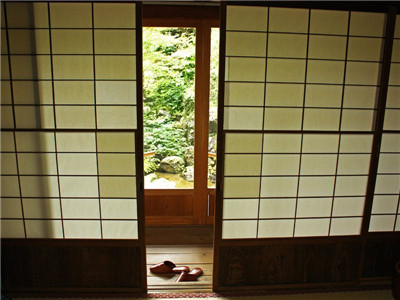7. There are toilet slippers for the bathrooms.
有廁所專用的拖鞋。

It is customary to change into slippers when entering a Japanese home, a traditional restaurant, temples, and sometimes museums and art galleries, according to Rough Guides. Basically any time you come across of row of slippers in Japan, you should just put them on.
進(jìn)日本屋子、傳統(tǒng)餐廳、廟宇和一些博物館藝術(shù)館之前換拖鞋是慣例。基本上你只要看見(jiàn)拖鞋,穿上它就對(duì)了。
There are even special toilet slippers kept inside the bathroom, so you'll take off your house slippers and put on the toilet slippers.
甚至于廁所也有專用的拖鞋,所以你需要脫下家居拖鞋換上廁所拖鞋。
8. You must always bring a host a gift.
你需要經(jīng)常預(yù)備禮物給招待你的人。
It is an honor in Japan to be invited to someone's home, and if this happens, you must always bring a gift. The gift should also be wrapped in the most elaborate way possible, and lots of fancy ribbons are suggested.
在日本被請(qǐng)進(jìn)別人家里是個(gè)榮耀,如果這真的發(fā)生了,你需要帶個(gè)禮物。禮物應(yīng)該被精心包裹,最好再加上飾帶。
You should also never refuse a gift once offered — but it is good practice to strongly protest the gift at first.
你也不應(yīng)該拒絕一份禮物,但在收下之前推辭一番也是必要的。











